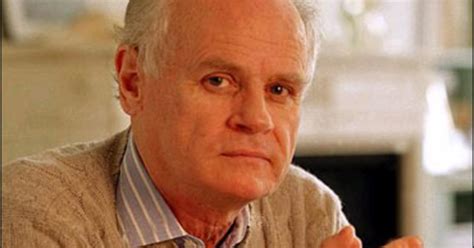A Quote by John Gregory Dunne
Only World War II, which mobilized 10 million draftees, could by any stretch of the imagination be called a people's war.
Quote Topics
Related Quotes
It's important to remember that World War II was experienced very much as a continuity in that sense. Most of World War II in most of Europe wasn't a war; it was an occupation. The war was at the beginning and the end, except in Germany and the Soviet Union, and even there really only at the end. So the rest of time it's an occupation, which in some ways was experienced as an extension of the interwar period. World War II was simply an extreme form, in a whole new key, of the disruption of normal life that began in 1914.
Sixty million people died in the Second World War. World War II was a gigantic crime. We condemn it all. We are against bloodshed, regardless of whether a crime was committed against a Muslim or against a Christian or a Jew. But the question is: Why among these 60 million victims are only the Jews the center of attention?
The casualties in the Civil War amount to more than all other wars - all other American wars combined. More people died in that war than World War II, World War I, Vietnam, etc. And that was a war for white supremacy. It was a war to erect a state in which the basis of it was the enslavement of black people.
I'm sort of optimistic about what we could do, but I'm very pessimistic about what we will do. I can't tell you that Al Gore's 10-year plan is impossible. I'm old enough to remember the Second World War - if we had a World War II-type mobilization, we might accomplish Gore's plan. In 1940 we were making tens of thousands of automobiles, and in 1941 we were making tens of thousands of airplanes. We mobilized as a nation. If we get that kind of mobilization as a nation or globally, then we could solve a lot of these problems.
However, there is a fundamental difference between the issue related to Japan's history and our negotiations with China. What is it all about? The Japanese issue resulted from World War II and is stipulated in the international instruments on the outcomes of World War II, while our discussions on border issues with our Chinese counterparts have nothing to do with World War II or any other military conflicts. This is the first, or rather, I should say, the second point.
There is a myth that the New Deal programs on their own pulled the US out of the Great Depression and created the conditions for the economic boom after World War II. As an economist, I can tell you, that is not true. In reality, it was mainly World War II that launched the boom - the massive war mobilization, the horrifying destruction and death caused by it, and then the reconstruction in its aftermath. he US was the only advanced capitalist country that was not bombed during the war.
In every major war we have fought in the 19th and 20th centuries. Americans have been asked to pay higher taxes - and nonessential programs have been cut - to support the military effort. Yet during this Iraq war, taxes have been lowered and domestic spending has climbed. In contrast to World War I, World War II, the Korean War and Vietnam, for most Americans this conflict has entailed no economic sacrifice. The only people really sacrificing for this war are the troops and their families.
World War II made war reputable because it was a just war. I wouldn't have missed it for anything. You know how many other just wars there have been? Not many. And the guys I served with became my brothers. If it weren't for World War II, I'd now be the garden editor of The Indianapolis Star. I wouldn't have moved away.
I actually thought that the idea of doing a World War II movie in the guise of a spaghetti western would just be an interesting way to tackle it. Just even the way that the spaghetti westerns tackled the history of the Old West, I thought it could be a neat thing to do that with World War II, but just as opposed to using cowboy iconography, using World War II iconography as kind of the jumping-off point.





































